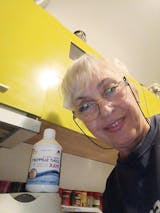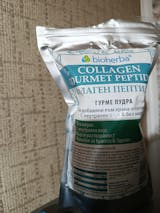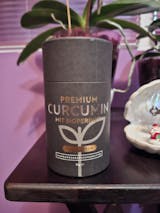Contributes to the normal functioning of the immune and respiratory systems
Nanga ® Monolaurin
Dietary supplement, 100 capsules
Contributes to the normal functioning of the immune and respiratory systems
Monolaurin is one of the main ingredients contained in coconut oil and is extremely beneficial for the immune system, as well as in combating viruses and bacteria.
Its ability to strengthen immunity is truly impressive. Monolaurin not only treats but also prevents bacterial, viral and fungal infections. It acts as a protective shield, helping the body fight various types of microorganisms and destroy them.
With the growing concern about antibiotic resistance, the question of possible treatment alternatives is essential. Monolaurin appears as a promising option. Its properties do not promote resistance in microorganisms, which is a great advantage over classic antibiotics.
What is monolaurin?
Monolaurin is a natural fat found in coconut oil and mammalian milk. Also known as glyceryl monolaurate or 1-lauroyl-glycerol, it is a monoglyceride – a glycerol molecule bonded to a fatty acid.
Coconut oil is rich in lauric acid, which makes up about 48% of its content. This acid is highly valued in the food industry and as a food additive. Interestingly, in the body, lauric acid is converted to monolaurin.
Monolaurin is a promising antimicrobial agent, its advantages include antibacterial and antiviral activity, safety and lack of toxicity. This component attracts attention as a potentially effective solution against various microbial infections, offering the prospect of safe and effective treatment.
Action of monolaurin
Its power lies in its ability to inactivate viruses by destroying their lipid envelope. This process eliminates their ability to penetrate and infect cells, which is key to their survival and reproduction in the body.
In addition to viruses, monolaurin also has a detrimental effect on a wide range of bacteria and fungi of the genus Candida. This antiviral and antibacterial agent is recognized as a modern tool that has significant advantages in fighting infections.
Monolaurin also has immunosuppressive and anti-inflammatory properties. It inhibits the activation of T-lymphocytes and the production of pro-inflammatory cytokines. This is of particular importance in cases of autoimmune diseases, where the immune system attacks the body's own cells and tissues.
Antiviral effect of monolaurin
Monolaurin kills any virus that has a fatty (lipid) membrane on the outside. Because monolaurin is the same size as the fat molecule of the virus, it is absorbed into the fat layer of the cell and prevents the virus from attaching to host cells, stopping infection and replication.
Antibacterial activity of monolaurin
Monolaurin is incorporated into the cell membrane of gram-positive bacteria and destroys them by disrupting the cell membrane. This prevents the replication and spread of bacteria, which facilitates the work of the immune system.
Immunity and monolaurin
Monolaurin increases the number of T cells, improving immunity. It does this by acting on the signaling pathway that controls the release of cytokines necessary for T cell proliferation.
Monolaurin kills the following viruses that have fatty envelopes:
- cytomegalovirus,
- Epstein-Barr virus,
- HIV-1, HIV+,
- measles virus,
- herpes simplex virus-1 and 2
- human lymphotropic virus
- vesicular stomatitis
- Visna virus
- influenza virus
- pneumovirus
- sarcoma virus
- syncytial virus
| Ingredients: |
Daily dose: |
Monolaurin
(glyceryl monolaurate) |
1000mg |
Cellulose capsule.
Does not contain: GMOs, preservatives. Suitable for vegans.
*nutritional reference values; **no nutritional reference value specified;
Application: Contributes to the normal functioning of the immune and respiratory systems.
Note: Not recommended for use by children, pregnant and breastfeeding women. Do not use as a substitute for a varied and nutritious diet. Do not exceed the recommended daily dose.
Recommended daily dose of the product: For adults over 18 years of age: 1 capsule 1-2 times daily.
Storage : In a cool, dry place away from direct sunlight, out of reach of children!
Expiration date and batch : Marked on the packaging.
Manufacturer : Nanga, Poland























































